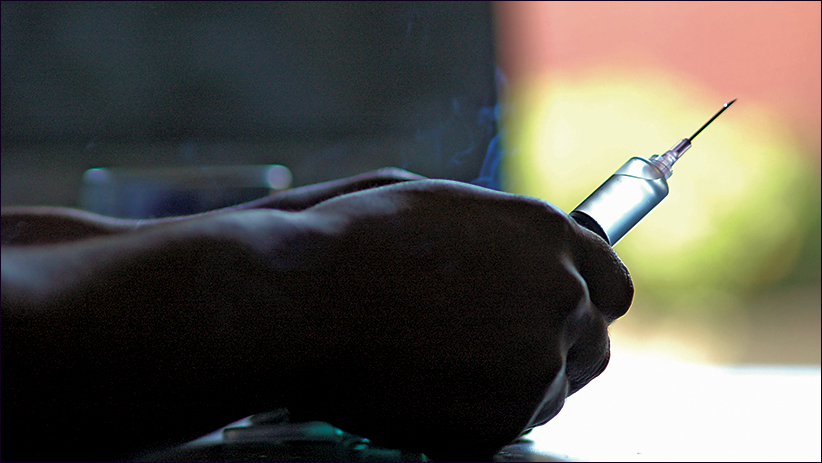If there’s a crisis today that is as urgent as it is heartbreakingly challenging to combat, it’s the opioid crisis. Too many of us know someone who knows someone affected by it, whether with addiction to prescription pain medications, heroin or the new deadly drug on the block, Fentanyl. It’s one thing to know to stay away from these drugs, but what else can we do to help combat the problem in our communities? Here are some ways.
Avoid Gateways and Educate About Them.
The problem with all addictions, is that they are far easier to fall into than climb out of. This is certainly true of the opioid epidemic, and it highlights the value of increasing awareness about how people fall into addiction. One common gateway, sadly, is the use of valid prescription drugs for pain relief that may result in temporary help turning into a deadly habit. One former opioid user, now sober, told me tighter prescribing guidelines from doctors could help — “Don’t write a script for 30 Vicodin when someone gets a wisdom tooth yanked!” — as well as greater education for people with addictive tendencies.
A substance-abuse counselor for over 40 years told me he thinks we need to pay more attention to gateways in recreational drug use as well. Does marijuana lead to deaths in the same way as heroin? Perhaps not, but every person he’s seen who ends up addicted to opioids first started with smaller illegal offenses and marijuana use that their parents or guardians brushed off as not a big problem.
Empower Families to Act Wisely in the Face of Overdose.
An ICU nurse in Cleveland who sees opioid-overdose patients told me about Narcan, the life-saving antidote that family members of addicts can administer if they find a loved one overdosing. There are a lot of opinions about Narcan and who are best to administer it — whether police, medical professionals or those living with addicts. Narcan is always most effective when administered as soon as overdose is discovered, so family members can be a pivotal part of saving lives. It can backfire, however, if family members of addicts use Narcan to try to solve the addict’s overdose at home, but neglect to take the overdosed person to the hospital. This can be deadly, because the opioid drug is active for a longer time in the body than one dose of Narcan.
“I think addicts need to know that a likely outcome to overdose is not their death — which many think is the worst thing that can happen,” she told me. “It’s brain death. I don’t think many of the addicts who have overdosed knew vividly that they could end up as I see many of them end up — brain dead, still alive but hooked up to machines, and completely incapacitated for the rest of their lives. Most people don’t want to end up like that.” Empowering family members to administer Narcan at home can minimize brain death, but greater education is needed to instill how imperative it is to admit the overdosed person to a hospital, so that he or she doesn’t die hours later when the Narcan wears off.
It might have seemed small at the time, but it sows seeds of a deadly lie in people’s’ minds — that illegal drug use is harmless.
Set Good Boundaries, and Be Very Patient.
Another way we can help combat the destruction of addiction is to learn how best to respond to addictive behaviors in others. There are many good reasons to consider going to Al-Anon or another local support group in which attendees learn how to cope (and not enable) in the face of a loved one’s addiction.
A big part of this is recognizing each person’s responsibility and refraining from fixing others’ problems, even when it hurts. People who attend 12-step groups often learn that recovery requires each party to take responsibility for their actions. With this mindset, one can more easily see how giving long leashes or continued second chances to those who have betrayed trust is uncharitable because it obstructs their ability to take responsibility for their actions, accept consequences and heal.
A good resource that offers evidence-based guidance along with a Christian perspective of charity is the book “Boundaries” by Dr. Henry Cloud and Dr. John Townsend. Reading it can prepare anyone close to those struggling with addictive behaviors to exercise the tough love that holds people accountable and is
essential to recovery.
Support Local Charities Responding to the Opioid Crisis.
Your local Catholic Charities could use your financial support, as well as other organizations helping people get back on their feet after addiction. This is important because healing requires resources that addicts often cannot afford. As a recovered opioid abuser told me, “Now that the epidemic is here, I think we need easy, fast access to affordable treatment and lots of patience (because most people don’t get clean right away, if at all).” She expressed that 28-day programs, from an addict’s perspective, are “way too short …. They need to be 90 days to a year-and-a-half so people have some time to relearn how to live, process emotions, deal with stress.” She also emphasized the importance of employment training, since “people who are on opioids have put their lives on pause for decades. Some have very little to get sober for — no more family, no skills, no employment options. They’ve fallen so far that it is easier to stay high. A program that trains them to live and to work as a functioning member of society” is pivotal.
Addicts are not the only ones who need help, either.
Natalie Goodnow, who researches the opioid crisis for the Wisconsin Institute for Law & Liberty, has reported that children of drug addicts are “a voiceless population that bears some of the worst repercussions of the opioid epidemic. The number of kids in foster care has grown 10 percent nationwide since 2012 … [and] Parental drug abuse reportedly played a role in at least a third of cases where children were removed from their homes in 2016.”
Goodnow told me we need to consider being a mentor for a year or several years to a young person in foster care or a Big Brother/Big Sister program.
“Mentorship is a big component in helping these kids have stability…. Reach out to your local organization and say ‘what do you need?'”
Young couples can also consider signing up for foster care or the lesser known option of respite care — in which families provide short-term care to foster or in-transition children in ways that work around their schedule, whether for a couple hours or a couple days.

Question Your Perception of Pain.
Since this is a crisis at its core about pain relief, we would be wise as a culture to change our perception of pain. Some responsible pain relief is possible and merciful, when full pain relief is not possible or wise, we as Christians can find meaning by connecting our pain with the pain of the Cross. We should treat with skepticism the perception that pain-free living is essential to good health; indeed, the opioid crisis proves that such a quest leads many down a path of destruction. Last but not least, we should turn to God in prayer — humbly thanking him if we’ve been spared addiction and asking for greater mercy and patience to help those suffering from it.
CNS and Unsplash photos




